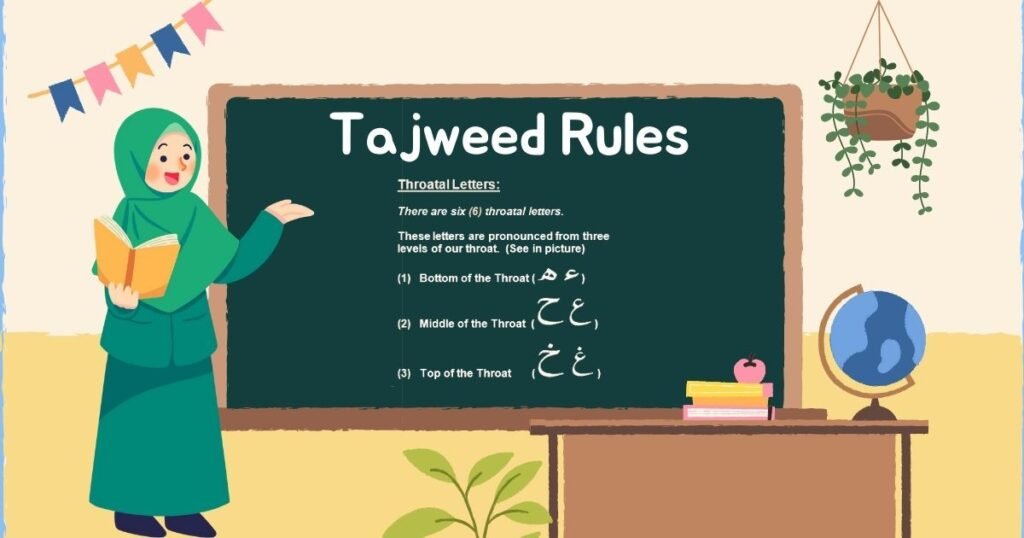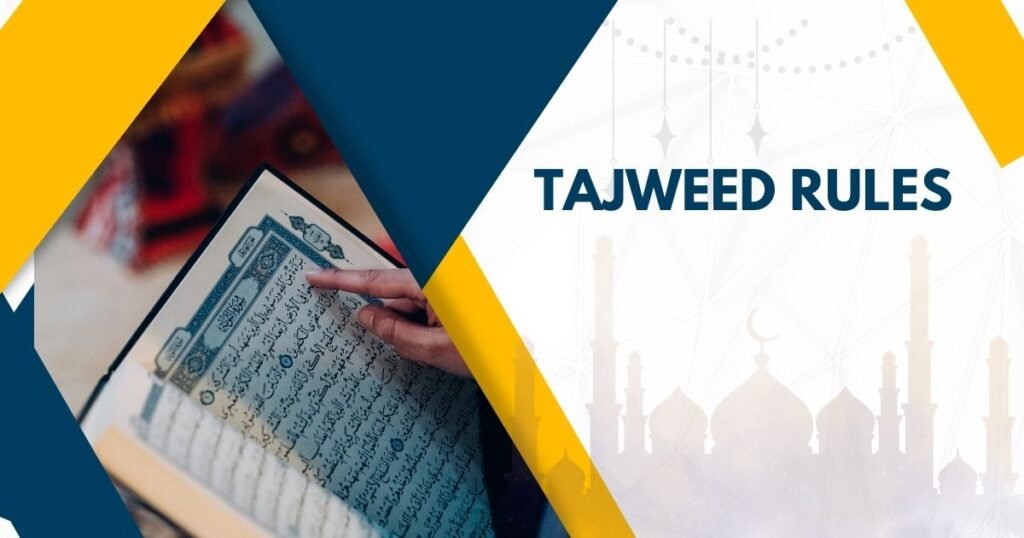Introduction
When someone recites the Quran with precision, clarity, and beauty, it is a deeply spiritual experience. At the heart of this art lies Tajweed rules, a set of complex rules governing the correct pronunciation of Quranic text.
Understanding Tajweed
Tajweed is often misinterpreted as mere technical regulations. Yet it is beyond that. It is what unlocks the linguistic beauty of the Quran while preserving its authentic pronunciations for a considerably deeper relationship with it.
Studying Tajweed rules takes you on a journey to discover new things. You start recognizing subtle shades of Arabic phonetics, and complicated patterns of recitation found in Quranic arabic and realize why correct pronunciation matters.
The Importance of Tajweed
Proper recital of the Holy Quran is a basic tenet within Islamic religion. It serves as an act of worship that brings one nearer to Allah. By mastering tajweed, you show your respect for the Quran and your determination to keep it pure.
Further, Tajweed enhances the understanding of the Quranic text. By pronouncing words correctly, you realize their true meaning and importance. As a result, one comes to have a greater reverence for the wisdom and guidance in the Quran.
The Building Blocks of Tajweed: Phonetics and Articulation
The mastery of Arabic phonetics underlies Tajweed. This entails recognizing various sounds in the Arabic language as well as how to make them accurately. It implies precise tongue placement, lip position, and palate.
Our online Tajweed courses are aimed at developing a good phonetic foundation. You will be able to learn correct pronunciation by conducting interactive courses with each sound individually pronounced by you through interactive sessions that focus on each sound teaching its correct pronunciation as you interact with real people within your community to produce each sound correctly. These will serve as a solid foundation for learning more sophisticated Tajweed Rules.
The Art of Letter Extension: Madd and Idghaam
One interesting facet of tajweed is letter extension. The term Madd refers to the elongation of specific letters while Idghaam refers to the merging of one letter on another. These are responsible for producing a rhythmical pattern that results from the recitation of the Qur’an.
To master Madd and Idghaam, it takes careful listening and practice based on this understanding. Our online tutors will take you through these rules making sure that your ears are trained well for accurate sounds.
The Nuances of Stops and Fluency: Waqf and Iqaf
For you to recite smoothly and fluently, you must comprehend the principles governing Waqf (pausing) and Iqaf (stopping). These are the rules that dictate when to pause or stop while reading verses of the Quran.
Beautiful recitation and rhythm can be achieved by correctly applying waqf and iqaf. It also helps you stress the meaning of the verses. Our online lessons will take you through how to identify them as well as different ways of applying them.
The Melody of Quranic Recitation: Qalqalah and Ghunna
Qalqalah gives a melodious tune when one is reciting the Quran, whereas Ghunna entails nasal sounds. This beauty in our voices comes from these principles.
To fully master Qalqalah and Ghunna, one has to pay attention to small details. By following a practical approach, our instructors ensure that students get enough practice on the pronunciation of these sounds.
The Subtleties of Pronunciation: Lisan al-Raqam and Idhar
There are two Tajweed rules called Lisan al-Raqam and Idhar that affect how some letters sound. In lisan al-raqam, “raa” is pronounced differently, while idhar means pronouncing a letter usually taken over into another form.
However, you must understand these rules very well to be able to recite accurately. Our online courses simplify these concepts into simple steps for easy understanding and use.

Tajweed on Qirat Quran Online
Comprehensive Tajweed classes are provided by us at Qirat Quran Online which can cater to learners of varying levels. The teaching process is made effective and engaging by our experienced instructors who adopt innovative approaches.
- Interactive Lessons: For reinforcement purposes, the platform has interactive exercises that consolidate learned material.
- Personalized Guidance: Based on one’s needs, our teachers provide customized instruction.
- Gradual Progression: Understanding is done through a step-by-step introduction of Tajweed rules.
- Continuous Practice: Reiteration of learning enhances its consolidation.
Benefits of Tajweed
Mastering Tajweed rules goes beyond pronouncing it correctly. It is a spiritual transformation of your relationship with the Qur’an. As you engage in further study of the laws governing tajweed, you will ultimately have deep respect for the beauty in language that Allah created the Quran with and His message therein.
On top of this, being able to recite correctly draws you closer to God. The worship purifies your heart and soul as well. The tranquility and peace deriving from mastery in Tajweed cannot be quantified at all.
Effective Ways of Learning Tajweed
- Practice Regularly: One should practice more and often to get the Tajweed right.
- Get Help: Learn from those people who are proficient in this art.
- Listen to Trusted Reciters: learn how to hear by following some skilled reciters of the Quran.
- Record Yourself Reading: Look at your reading, and see where you may improve.
Tajweed Mastery Requires Patience and Persistence
Conclusion
Learning Tajweed is a worthwhile endeavor that will make your spiritual life richer. It is also an investment in your relationship with the Quran confirming faith in it.
We at Qirat Quran Online are dedicated to helping you excel in Tajweed. Our online classes coupled with personalized coaching will enable you to crack codes of Quran reading.

